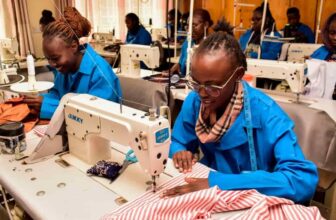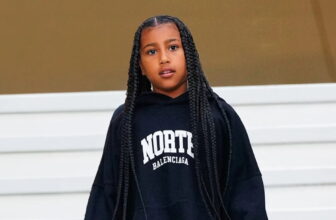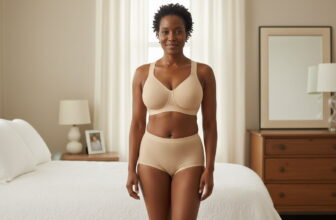This year’s Met Gala proved once and for all that you can look great even as you age. Folks like 56-year-old Salma Hayek and 60-year-old Michelle Yeoh looked at their very best at the New York-based fashion show earlier this year.
However, looking youthful is about more than buying a designer dress and jewelry. Looking — and feeling — youthful is all about taking a proactive approach to your health and well-being.
Skin Care
Your skin is an outward reflection of your overall health. Some skin conditions, like rashes and bumps around your eyes, may even be indicative of other issues like high cholesterol and Lyme disease. These health-related issues can have a negative impact on your skin’s appearance and may exacerbate the onset of early wrinkles.
Aging can reduce your skin’s elasticity, too. Your body produces less collagen as you age and have been exposed to a lifetime of UV radiation and pollution. Fortunately, you can improve your skin’s elasticity with a few preventative measures:
 Photo: HuHa INC/Unsplash
Photo: HuHa INC/Unsplash - Stay Hydrated: Drinking enough water can help your body retain moisture and keep your skin supple.
- Add Collagen to Your Diet: Collagen is a protein that protects your skin. High-collagen foods or supplements can increase the production of new collagen fibers and help your skin recover.
- Use Hyaluronic Acid: Hyaluronic acid helps you stay hydrated and can improve the elasticity of your skin.
These preventative measures can help your skin snap back in place and ensure your skin retains a more youthful look. Staying well-hydrated can help you feel more youthful, too, as drinking water can help fight fatigue, prevent headaches, aid weight loss, and boost your energy levels.
Remember to take care of your scalp, too. The skin beneath your hair can easily become damaged. This may lead to hair loss and dandruff if left unchecked. You can improve your scalp health by opting for products that do not contain sulfates, alcohols, fragrances, parabens, or lanolin. This will reduce dryness and help your hair stay soft.
Slowing the Effects of Aging
Aging is a natural process that should be embraced. However, it’s entirely normal to want to slow the negative effects of aging as you approach your senior years. Preventative health practices, like weight management, flu vaccinations, and regular check-ups with your GP, can improve your long-term health and help slow the effects of aging.
Regular exercise is a great way to boost your energy levels and improve your appearance, too. Working up a sweat is well known to have an anti-aging effect, and may help with:
- Improved cognitive function;
- Increase muscle and skeletal strength;
- High metabolism.
Specific types of exercise may also be beneficial if you are looking to reverse the aging process. For example, research indicates that high-intensity interval training (HIIT), in particular, can slow down the aging process by helping your cells divide and repair. This process can increase the amount of nitric oxide in the blood and may prevent the early onset of gray hairs, wrinkles, and heart disease.
While there is nothing wrong with enjoying in moderation, you also want to consider your eating and drinking habits as you age. For example, you might enjoy indulging in a glass of wine every now and then, but you should be aware of the side effects that come with doing so.
Drinking alcohol will make you feel more fatigued and can also exacerbate mental health issues such as depression. Chronic drinking can harm your immune system, too. Alcohol reduces your white blood cell count and interferes with your body’s ability to fight off disease and illness. This can hasten the effects of aging, as sickness is sure to reduce your energy and spike your stress levels.
Stress Management
Aging can be stressful. Your responsibilities inevitably increase as you age, and losing your youthful looks can feel like a cruel trick. Learning to manage the stress associated with adult life is key if you want to retain your looks and fight fatigue in later life.
 Photo: Anthony Tran/Unsplash
Photo: Anthony Tran/Unsplash Reduce your stress levels and improve your resilience by planning activities with a purpose. This is particularly important if you are approaching retirement age, as a lack of social interactions post-retirement can quickly bring you down. Look for opportunities to fill your time meaningfully, such as by volunteering with your local community, attending community gardening schemes, and taking classes at a nearby college.
As you age, you may find that your daily living skills reduce due to physical issues, as well as cognitive impairment. This is normal, and in some cases, it can be exacerbated if you do not reduce your stress. Luckily, there are places such as a memory care New Hampshire facility (amongst others) that can support this next chapter to help keep your brain functioning.
You may need a mindset adjustment if you find that the idea of aging is getting you down. Just keep in mind that, in today’s more age-positive society, beauty is no longer synonymous with youthfulness. For example, figures like 82-year-old Miriam Margolyes have been featured in Vogue Magazine, and are slowly changing public perception of what it means to enter later life.
Conclusion
The early onset of wrinkles and gray hair may make you feel a little glum. However, with a proactive approach, you can slow the effects of aging.
Staying hydrated and exercising regularly can improve the elasticity of your skin, while collagen products can improve your body’s ability to repair itself. Remember to focus on the positives of aging, too. Later life can be as thrilling and energizing as your younger years — you just have to adopt the right mindset.







